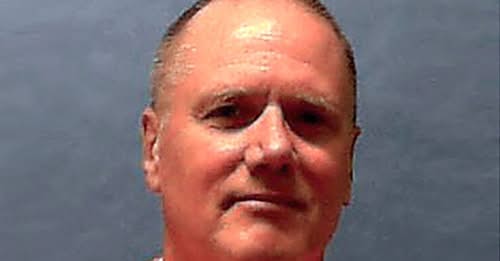FLORIDA EXECUTION SETS STATE RECORD: Convicted Family Killer Put to Death After Three Decades
In a landmark and emotionally charged moment for the state of Florida, a man convicted of a brutal machete attack that claimed the lives of his wife and two young children more than thirty years ago was executed by lethal injection on Thursday, July 31, 2025. The execution, carried out at Florida State Prison in Raiford, marked the state’s eighth of the year — the highest number of executions Florida has seen in a single calendar year since the reinstatement of the death penalty in 1976.
The man, whose name had long been synonymous with one of the most horrific crimes in the state’s modern history, was sentenced to death for the 1992 killings that shocked a quiet suburban community near Orlando. Prosecutors at the time described the scene as one of unparalleled savagery: the bodies of the man’s wife and their two children, ages 6 and 9, were discovered in their home, all victims of repeated blows from a machete. The attack was so violent that even seasoned detectives said they were shaken by the brutality.
For over three decades, the case haunted Floridians — not only because of the cruelty of the crime, but also due to the deep legal and moral questions it raised. The man maintained his innocence throughout the years, despite overwhelming forensic evidence, eyewitness accounts, and a confession that he later recanted. His legal team filed numerous appeals over the years, citing alleged misconduct, ineffective counsel, and questions over his mental health. However, the courts ultimately upheld the original conviction and sentence.
Witnesses to the execution included a small group of journalists, victims’ family members, and representatives from the state. The execution began at 6:02 p.m. and was completed by 6:15 p.m. According to officials, the man declined to make a final statement. He reportedly spent his last day meeting with a spiritual advisor, eating a final meal of fried chicken, mashed potatoes, and chocolate cake, and writing a letter to his surviving siblings.
Family members of the victims, many of whom had waited decades for justice, expressed a mixture of relief and sorrow. “We didn’t want this day to come — not because he didn’t deserve it, but because it reminded us again of what we lost,” said a cousin of the slain wife. “We were robbed of a lifetime of birthdays, holidays, and graduations. No punishment could ever give us that back.”
Governor Mariana Wells, who signed off on the execution order, addressed the historic moment in a written statement: “Today, the State of Florida carried out the sentence imposed by a jury of the defendant’s peers. The justice system has spoken. While we can never undo the pain inflicted by this heinous crime, we stand by our commitment to uphold the rule of law and ensure that justice is served.”
The execution adds to a broader national conversation about capital punishment, especially in states like Florida that have ramped up their use of the death penalty in recent years. Civil rights groups, religious leaders, and anti-death penalty advocates held vigils outside the prison gates in protest. Many argue that the increased pace of executions raises serious ethical and procedural concerns, including the potential for wrongful convictions, racial disparities in sentencing, and the moral legitimacy of state-sanctioned death.
“Today’s execution does not solve violence; it repeats it,” said Eliza Grant, director of the Florida Center for Justice Reform. “We believe there are more just and humane ways to respond to even the most heinous crimes.”
Despite the opposition, support for the death penalty remains strong among many Floridians. A recent statewide poll indicated that nearly 60% of residents continue to support capital punishment in cases of particularly egregious crimes.
As the sun set over the prison, the gates slowly closed behind the small procession of cars carrying the witnesses away. For some, it marked the long-awaited closure of a nightmarish chapter. For others, it was another somber reminder of a justice system still fraught with complexities.
The legacy of the man executed — his crime, his trial, and now his death — will undoubtedly remain a permanent scar on Florida’s legal and cultural memory. Whether seen as justice served or a missed opportunity for mercy, the case stands as a grim benchmark in the history of capital punishment in America.

Leave a Reply